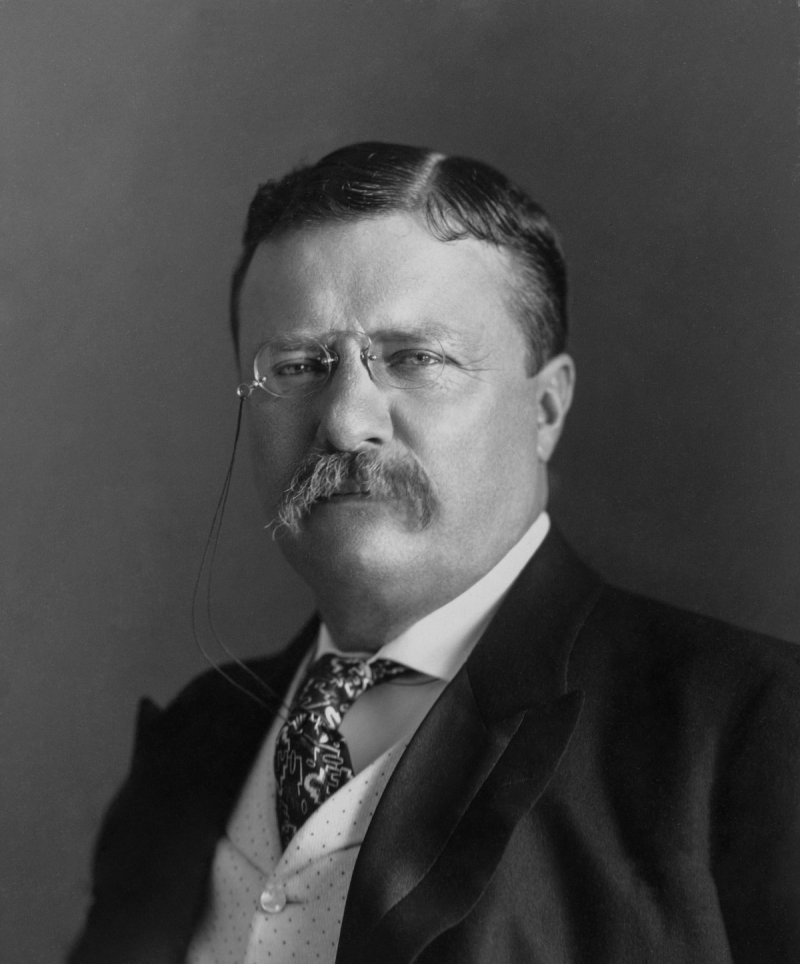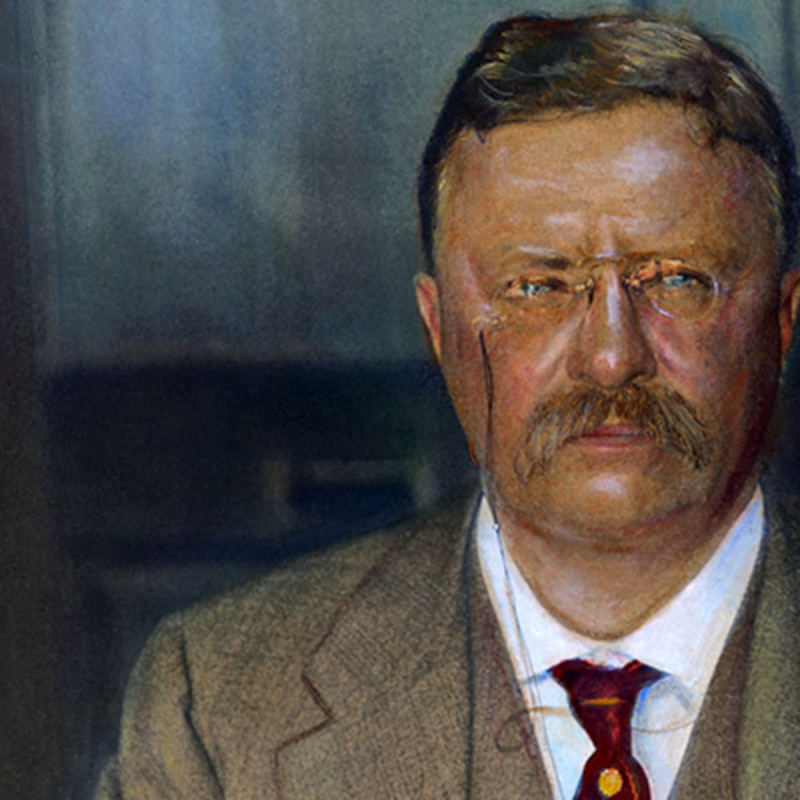Theodore Roosevelt
Theodore Roosevelt Jr. (October 27, 1858 - January 6, 1919), also known as Teddy or by his initials T. R., was the 26th President of the United States from 1901 to 1909. He previously served as President William McKinley's 25th vice president from March to September 1901, as well as the 33rd governor of New York from 1899 to 1900. Following McKinley's assassination, Roosevelt emerged as the Republican Party's leader and became a driving force for anti-trust and Progressive policies.
As a sickly child with crippling asthma, Theodore Roosevelt overcame his health issues by adopting an active lifestyle. He combined his exuberant personality and diverse interests and accomplishments into a "cowboy" persona defined by rugged masculinity. Before attending Harvard, he was home-schooled and began a lifelong career as a naturalist. His book The Naval War of 1812 (1882) established him as a knowledgeable historian and popular author. When he entered politics, he became the leader of the Republican reform faction in New York's state legislature. His wife and mother died on the same night, leaving him psychologically devastated. He was able to recover by purchasing and operating a cattle ranch in the Dakotas. Under President William McKinley, he served as Assistant Secretary of the Navy and helped plan the highly successful naval war against Spain in 1898. He resigned to help form and lead the Rough Riders, a unit that gained fame for fighting the Spanish army in Cuba. In 1898, he was elected governor of New York as a war hero. The New York state party leadership despised McKinley's ambitious agenda and persuaded him to name Roosevelt as his running mate in the 1900 election. Roosevelt ran an aggressive campaign, and the McKinley-Roosevelt ticket won a landslide victory on a platform of victory, peace, and prosperity.
After McKinley was assassinated in September 1901, Roosevelt assumed the presidency at the age of 42. He is still the youngest person to hold the office of President of the United States. Roosevelt was a progressive movement leader who promoted his "Square Deal" domestic policies, which promised the average citizen fairness, breaking of trusts, railroad regulation, and pure food and drugs. To preserve the nation's natural resources, he prioritized conservation and established national parks, forests, and monuments. He focused his foreign policy on Central America, where he began construction on the Panama Canal. He increased the size of the Navy and sent the Great White Fleet on a world tour to demonstrate American naval power. His successful efforts to end the Russo-Japanese War earned him the Nobel Peace Prize in 1906. In 1904 Roosevelt was re-elected to a full term and continued to advocate for progressive policies. In the 1908 presidential election, he groomed his close friend William Howard Taft to succeed him.
Roosevelt became dissatisfied with Taft's brand of conservatism and unsuccessfully sought the Republican presidential nomination in 1912. He was unsuccessful, so he left and founded the Progressive Party. He ran in the presidential election of 1912, and the split allowed the Democratic nominee, Woodrow Wilson, to win. After his defeat, Roosevelt led a two-year expedition to the Amazon basin, where he nearly died from tropical disease. During WWI, he chastised Wilson for keeping the country out of the war, and his offer to lead volunteers to France was turned down. In 1920, he considered running for president again, but his health deteriorated. He passed away in 1919. Historians and political scientists rank him as one of the greatest presidents in American history, according to polls.












